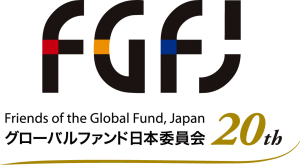More than 100 government, business, NGO, and philanthropic leaders from around the world gathered in Beijing, China, for a major conference on July 10-11, 2006, which was jointly organized by the Friends of the Global Fund, Japan (FGFJ), the Chinese Center for Disease Control and Prevention, and the Global Fund to Fight AIDS, Tuberculosis and Malaria. This conference was designed to build upon the English and Chinese publication of Fighting a Rising Tide: The Response to AIDS in East Asia, and it included many of the experts who began cooperating with one another through the study that culminated in this book.
China’s Vice Minister of Health Jiefu Huang, Representative Ichiro Aisawa of Japan, and Global Fund Executive Director Richard Feachem opened the conference, and participants discussed the regional spread of the diseases, China’s response, and effective strategies for promoting cross-border cooperation. The stories and experiences shared at this conference provide compelling evidence of just how indispensable regional and cross-border cooperation is in the fight against communicable diseases.
Drawing on their personal experiences, the conference participants recommended a number of steps to help increase regional and cross-border cooperation and make it more effective. The first thing that is needed is greater information sharing—between counterparts engaged in cooperative initiatives and, in a more general sense, at the regional level about the epidemiology of communicable diseases, the state of responses, and ongoing cooperative initiatives in individual countries and localities. A heightened degree of flexibility is also crucial so that regional and cross-border approaches can be tailored to local conditions.
Responses should not just involve foreign ministries or health ministries; rather they also need to be cross-sectoral, cross-agency, and cross-disciplinary in order to be most effective. The role of NGOs, in particular, was stressed by conference participants as especially vital in regional and cross-border cooperation, because they are often best placed to reach the mobile populations, ethnic minorities, and vulnerable groups that national and local governments struggle to engage. Finally, there is a pressing need to strengthen the sense of East Asia community and build up regional organizations, forums, and networks in order to create an institutional framework to tackle communicable diseases.
Conference Report
East Asian Regional Cooperation in the Fight Against HIV/AIDS, Tuberculosis, and Malaria
Friends of the Global Fund, Japan (FGFJ), and Chinese Centers for Disease Control and Prevention; 45 pages; June 2007
Copyright © 2007 Japan Center for International Exchange
Download full report
Download Individual chapters
- Introduction—Tadashi Yamamoto and Wang Yu [pdf]
- Opening Remarks—Jiefu Huang, Richard Feachem, and Ichiro Aisawa [pdf]
- Cross-Border Cooperation and the Global Fight Against Communicable Diseases—Christoph Benn [pdf]
- Human Security Approaches: Health as a Global Public Good—Mely Caballero-Anthony [pdf]
- Common Regional Challenges in Responding to Communicable Diseases—Summary of Discussion
- Fighting AIDS and Other Communicable Diseases in China—Summary of Discussion
- Building Effective Coss-Border and Regional Cooperation in Asia—Summary of Discussion
- Agenda and Participant List
[pdf]

